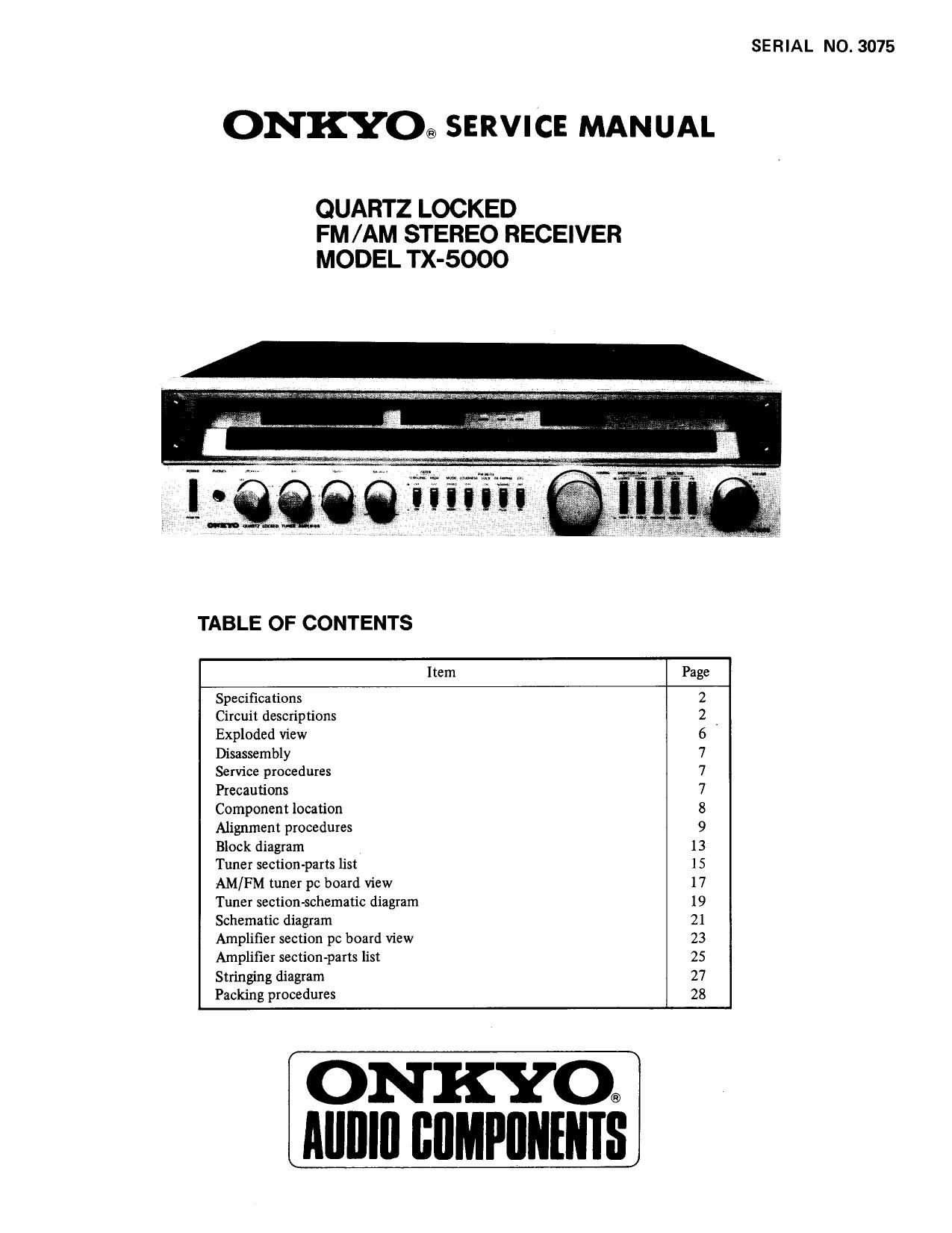Onkyo TX 5000 Service Manual
This is the 21 pages manual for Onkyo TX 5000 Service Manual.
Read or download the pdf for free. If you want to contribute, please upload pdfs to audioservicemanuals.wetransfer.com.
Page: 1 / 21
